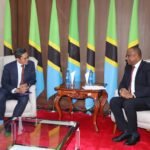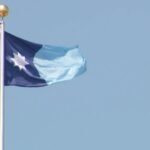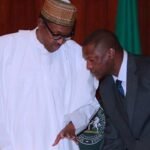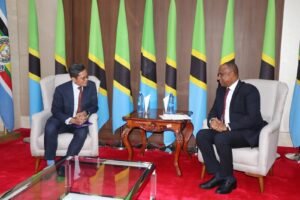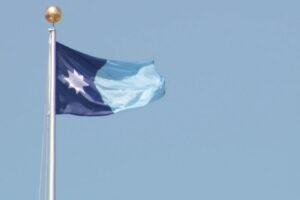Gen Khalifa Haftar warned of military action unless oil revenues are divided fairly
Fears have been raised of a damaging oil shutdown in Libya with implications for global energy markets after Libya’s strongman in the east, Gen Khalifa Haftar, warned of military action unless oil revenues are divided fairly within the next two months.
With the country long divided between two governments in the east and west and little prospect of presidential elections designed to reunify the country at least until next year, politicians in the east have threatened to put oil revenues under judicial control preventing the revenue reaching the Central Bank from the National Oil Corporation (NOC), the state-run oil firm.
Eastern politicians claim the Central Bank distributes the bulk of oil revenues to the rival UN-recognised government based in Tripoli, even though the oil is produced in fields largely based in the east of the country.
The US special envoy to Libya, Richard Norland, eager to keep oil production flowing, had urged the east not to disrupt production.
In a speech near Benghazi on Monday night, Haftar demanded a new “higher financial committee” be established to agree on the distribution of Libya’s oil resources. He warned that if the body was not established by the end of August, “the armed forces will be ready for orders when the time comes”, remarks that suggest he would shut down the oil fields.
Libya produces 1.2m barrels a day, but has plans to increase production to 2m barrels by 2027. Much of the oil goes to European customers looking for a replacement for lost Russian crude.
Haftar’s speech included an attack on the leadership of the Central Bank of Libya for allowing rampant corruption.
He also called on foreign ambassadors, naming Norland, to stay out of the affairs of Libya saying their interventions had been an abject failure, self-interested and only worsened divides in the country.
Norland had earlier urged the east not to shut down oil production, saying: “We call on all Libyan leaders to put in place a comprehensive mechanism to control revenues as a constructive way to address grievances about the distribution of oil revenues and to establish transparency without jeopardising the integrity of Libya’s economy or the non-political nature of the National Oil Corporation.”
There have been rumours that the NOC chairman, Farhat bin Qadara, appointed a year ago after his predecessor was forced out, was prepared to quit due to the political pressure, but he appears to be willing to stay on and try to mediate between Haftar and the Tripoli-based government led by a wealthy businessman prime minister Abdul Hamid Dbeibeh.
Haftar claimed the central bank’s data indicated that “the documentary credits for the year 2022 valued at $10bn were distributed to 1,646 private companies last year, of which the share of the eastern region was 7%, and the southern region received only 2% of the total of these credits”.
He said that official audit reports showed shocking tampering with the capabilities of the Libyan people with more than 200bn dinars distributed without any benefit to the Libyan people, adding that public funds are still wasted on a daily basis. He claimed government spending amounted to 122bn dinars, while oil revenues amounted to 135bn dinars.
“There is a level of looting of public money that has not happened in the contemporary history of Libya, with the inability of oversight and the judiciary to do anything to stop the bleeding and theft of public money openly during the day, and in return the Libyans are starving and getting poorer day by day,” he said.
Libya is ranked 172 out of 179 in the Transparency International corruption perceptions index, and Haftar is an unlikely champion of an anti-corruption drive.
Norland ignored the personal attacks mounted on him over his interventions, saying before Haftar’s speech: “The important issue of how Libya’s oil revenues are distributed has been one of the issues underlying conflict in Libya so I am pleased that my recent comments have generated such useful debate among Libyan leaders.”
Source: The Guardian


